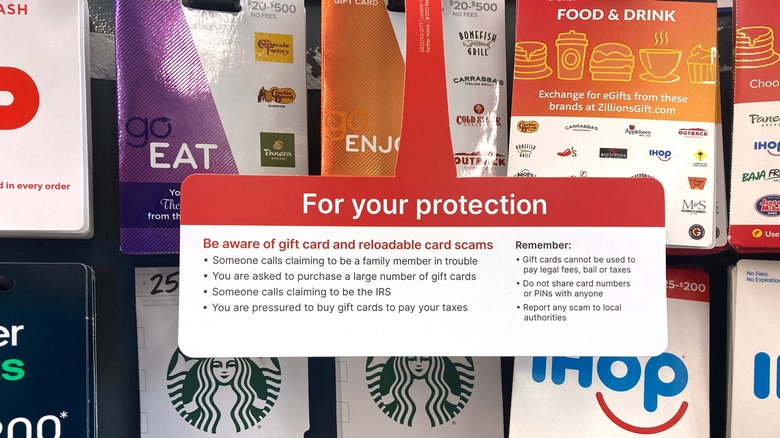You've Been Warned: Buying A Used Car From Facebook Marketplace Could Cost You Big Time
When ready to purchase a car, it's natural for buyers to seek a good deal. This often involves looking at a wide range of vehicles to make the best choice. It can be smart to consider a used one, too. After all, prices of new cars can make anyone think twice. In fact, the average price of a new car in December 2024, according to industry guide Kelley Blue Book, was a whopping $49,740 — near the all-time high.
Facebook Marketplace — an online platform that remotely connects buyers and sellers through their social media platform — might seem like an ideal venue to find a used car due to the significant number of vehicles that are listed for sale on the platform. Unfortunately, not all Facebook Marketplace sellers are focused on legitimate sales, and their bad intent can cost buyers a load of money. Facebook itself even specifically calls out the need for caution when using Marketplace for car sales. According to local Denver Fox 21, a single mother of three ended up losing $16,000 after unknowingly buying a stolen car in 2024. Meanwhile Port Charlotte's Fox 4 highlighted another woman who, in 2025, lost her life savings of $8,500 on a car sold on Facebook Marketplace when the seller knew the vehicle was unsafe to drive. These aren't isolated cases, either. In a sampling of 100 Facebook ads in November 2023, the fraud team from the British commercial bank, TSB, found that 34% of the ads were fraudulent. The category with the most fraud, at 21%, was vehicles and vehicle parts.
When deals seem too good to be true
Facebook also notes how people with ill intent can set low prices to entice buyers into fraudulent transactions. When unsure about a vehicle's actual value — to protect themselves and their money — a buyer should check the information against Kelley Blue Book or any other trusted industry guide to verify if a seller is setting a reasonable price. Similarly, the National Motor Vehicle Title Information System (NMVTIS) can provide information about a specific vehicle's history and condition. The challenge with NMVTIS is that the seller would need to provide you with the car's unique vehicle identification number (VIN), which a scammer would likely be reluctant to do. With that said, it's a huge red flag if a seller refuses to provide this information to you.
Also, try to discern if the seller is using a stock photo of a vehicle rather than actual photos of the listed car. This could indicate that they're trying to hide flaws in the vehicle that might reduce its value. Another warning sign to look out for is if the seller of a low-price used car uses pressure tactics. This can include claiming that other people want to buy the car, and/or suggesting that the buyer pay an upfront deposit to secure the sale even if the buyer hasn't yet inspected the vehicle in person. If any information gleaned, or requests made, set off warning bells — it's safest to move on to a different seller and vehicle.
Watch out for suspicious payment methods
Besides using too-low pricing as enticement, another Facebook Marketplace scam to watch out for involves suspicious payment methods — such as paying in gift cards. Facebook warns about transactions that require this payment method and, if going ahead with this route, states that buyers should not share gift card claim codes to a seller they don't personally know. Scam-driven sellers will use the gift cards without delivering the vehicle, causing the buyer to be out the money since gift card scams are impossible to trace and rectify – thanks to the lack of a name or other identifying information connected to gift cards. After receiving the gift card, the fraudulent seller might block a buyer or simply delete their entire Facebook Marketplace account before spending the gift card funds.
To prevent being cheated in this way, Facebook recommends using traceable online payment platforms, which include through Facebook directly. Many eligible purchases, bought directly through the Marketplace, come with free purchase protection. If an item doesn't arrive or isn't in its promised condition (and the seller doesn't provide a refund within two days of receiving the buyer's complaint), Facebook will investigate the claim. The investigation may take up to 48 hours, and if approved, Facebook states that they will provide a refund within 10 days.


